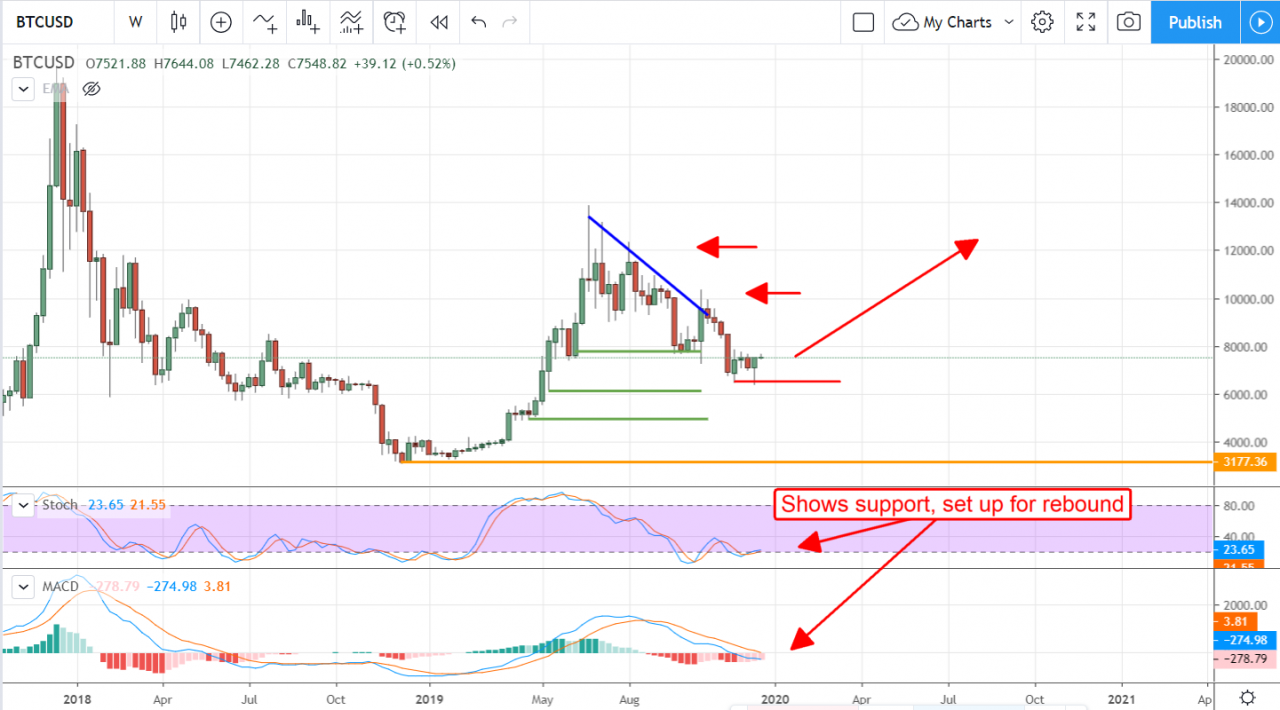The Bitcoin price outlook is a complex tapestry woven from interwoven threads of technical analysis, market sentiment, economic factors, and technological advancements. This analysis delves into the intricacies of Bitcoin’s current position, exploring the forces driving its price fluctuations and providing a comprehensive perspective on its potential future trajectory. We’ll examine everything from the cryptocurrency market’s overall health to the regulatory environment and its impact.
Understanding the current Bitcoin price outlook requires a multi-faceted approach, considering not just the immediate trends but also the long-term potential. This report provides a balanced assessment of the forces shaping Bitcoin’s value, empowering readers to form their own informed opinions on its future.
Bitcoin Fundamentals
Bitcoin, launched in 2009, is a decentralized digital currency operating on a peer-to-peer network. Its innovative approach to transactions and security has captivated the financial world, but also presented significant challenges. Understanding its history, technology, and core principles is essential to evaluating its potential.Bitcoin’s core concept revolves around a distributed ledger, the blockchain, which records and verifies transactions across a network of computers.
This decentralized system eliminates the need for intermediaries, like banks, promoting transparency and potentially reducing transaction costs. However, this very decentralization also introduces unique complexities.
Bitcoin’s History and Technology
Bitcoin’s genesis lies in the desire for a digital currency free from central control. This vision, articulated by the pseudonymous Satoshi Nakamoto, aimed to create a system resistant to manipulation and censorship. The underlying technology, the blockchain, is a public, immutable record of all transactions, secured by cryptographic hashing. Each block of transactions is chained together, forming a continuously growing ledger.
This cryptographic structure ensures data integrity and transparency, underpinning Bitcoin’s security.
Bitcoin’s Core Principles and Mechanisms
Bitcoin’s core principles emphasize decentralization, security, and transparency. Transactions are verified by network nodes, distributed across the globe, using cryptographic algorithms. This consensus mechanism prevents double-spending and ensures the integrity of the ledger. Mining, a crucial process in Bitcoin’s operation, involves solving complex mathematical problems to add new blocks to the blockchain. Miners are rewarded with newly created Bitcoin for their computational efforts.
Key Factors Influencing Bitcoin’s Value Proposition
Several factors contribute to Bitcoin’s perceived value. Limited supply, capped at 21 million coins, is a key driver. This scarcity can lead to increased demand, potentially pushing up the price. Adoption by businesses and individuals, increasing its use in everyday transactions, adds further impetus to its value. The inherent security and immutability of the blockchain further enhances its appeal.
However, factors like regulatory uncertainty and volatility can significantly affect Bitcoin’s value.
Comparison to Other Cryptocurrencies
Bitcoin’s status as the first cryptocurrency gives it a unique position in the market. While other cryptocurrencies, like Ethereum, focus on smart contracts and decentralized applications, Bitcoin remains a purely transactional digital currency. Its strengths lie in its early adoption, established network, and perceived stability. However, other cryptocurrencies often offer greater functionality and scalability, addressing limitations in Bitcoin’s design.
Bitcoin Technical Characteristics
This table Artikels some key technical characteristics of Bitcoin.
| Characteristic |
Details |
| Block Size |
1MB |
| Transaction Speed |
Average time of several minutes per transaction |
| Energy Consumption |
High, although varying and subject to ongoing debate. |
Bitcoin’s block size, transaction speed, and energy consumption are often cited as areas for improvement, prompting ongoing development and innovation in the cryptocurrency space.
Economic Factors
Bitcoin’s price is significantly influenced by global economic conditions. These factors, including inflation, interest rates, and broader market sentiment, often interact in complex ways to shape the cryptocurrency’s trajectory. Understanding these relationships is crucial for evaluating Bitcoin’s potential future performance.Global economic conditions play a pivotal role in Bitcoin’s price movements. A robust global economy, often characterized by low unemployment and high consumer confidence, can lead to increased investment in Bitcoin as a hedge against traditional assets.
Conversely, economic downturns or uncertainty can cause investors to seek safe havens, potentially impacting Bitcoin’s appeal.
Impact of Inflation and Interest Rates
Inflation and interest rates are key economic indicators that significantly influence Bitcoin’s price. High inflation erodes the purchasing power of fiat currencies, potentially driving investors towards Bitcoin as a store of value. Conversely, rising interest rates can increase the attractiveness of traditional fixed-income investments, potentially diverting capital away from Bitcoin. The relationship between these macroeconomic factors and Bitcoin’s price is not always straightforward, but these factors are consistently influential.
Relationship with Other Financial Assets
Bitcoin’s price often correlates with the performance of other financial assets. During periods of market volatility or uncertainty, investors might allocate capital to both Bitcoin and traditional assets like gold, seeking diversification and protection. This dynamic relationship highlights the interconnectedness of financial markets. For example, a sharp decline in stock market indices might coincide with an increase in Bitcoin’s value as investors seek alternative assets.
Impact of Major Economic Events
Major economic events, such as recessions and wars, can significantly impact Bitcoin’s price. Recessions, characterized by economic contraction and uncertainty, can often lead to a search for alternative investment opportunities, which can boost Bitcoin’s price. Similarly, geopolitical events like wars or political instability can trigger a flight to safety, which can lead to both increased and decreased demand for Bitcoin, depending on the specific circumstances.
For instance, during the 2008 financial crisis, Bitcoin’s price saw substantial fluctuations as investors reacted to the global economic uncertainty.
Market Sentiment and Bitcoin’s Price
Market sentiment plays a crucial role in shaping Bitcoin’s price. Positive investor sentiment and news coverage can boost demand and price, while negative sentiment can trigger downward pressure. Social media and news cycles often significantly impact public perception of Bitcoin, which can translate into tangible price movements. The volatile nature of Bitcoin’s price often reflects the fluctuating opinions and emotions within the broader investment community.
Correlation Between Bitcoin Price and Economic Indicators
The following table illustrates potential correlations between Bitcoin’s price and selected economic indicators. It is important to remember that these correlations are not definitive and can vary depending on the specific economic climate and market conditions.
| Economic Indicator |
Potential Correlation with Bitcoin Price |
| Inflation Rate |
Negative correlation (high inflation may correlate with higher Bitcoin price) |
| Interest Rates |
Negative correlation (rising interest rates may correlate with lower Bitcoin price) |
| Global Economic Growth |
Positive correlation (strong economic growth may correlate with higher Bitcoin price) |
| Market Volatility |
Positive correlation (high market volatility may correlate with higher Bitcoin price) |
| Geopolitical Events |
Mixed correlation (depends on the specific event and market reaction) |
Technological Advancements
Bitcoin’s price is intrinsically linked to the technological advancements surrounding it. Innovations in blockchain technology, along with potential upgrades and comparisons to other cryptocurrencies, significantly influence investor confidence and market sentiment. Recent developments in Bitcoin’s underlying technology and their impact on its future functionality are key factors to consider when evaluating its price outlook.
Potential Technological Advancements Impacting Bitcoin’s Price
Several potential technological advancements could impact Bitcoin’s price. These include improvements in scalability, enhanced security protocols, and the integration of new technologies like AI and machine learning. Increased scalability, allowing for faster transaction speeds and higher throughput, could attract more users and increase demand, potentially driving up the price. Likewise, enhanced security protocols, addressing potential vulnerabilities and mitigating risks, would bolster investor confidence and potentially attract more institutional investment.
Role of Blockchain Technology in Shaping Bitcoin’s Future
Blockchain technology is fundamental to Bitcoin’s existence. It underpins Bitcoin’s decentralized nature, security, and transparency. Improvements in blockchain technology can directly affect Bitcoin’s functionality and efficiency. The inherent security and immutability of the blockchain are critical factors in determining Bitcoin’s long-term viability and attractiveness. For example, enhanced consensus mechanisms can lead to faster transaction confirmation times and potentially lower transaction fees.
Recent Developments in Bitcoin’s Underlying Technology
Recent developments in Bitcoin’s underlying technology have focused on addressing scalability issues and improving transaction speed. Upgrades like the Taproot upgrade aim to enhance transaction efficiency and privacy, while other developments concentrate on sharding and other scaling solutions. These developments reflect the ongoing evolution of the technology and its potential to overcome challenges and adapt to growing demand.
Comparison of Bitcoin’s Future with Other Cryptocurrencies in Terms of Technology
Bitcoin’s future relative to other cryptocurrencies depends on its ability to adapt and innovate. While Bitcoin boasts a strong foundational technology and a large, established user base, other cryptocurrencies may offer specific advantages in terms of scalability, cost, and functionality. For instance, some altcoins may prioritize faster transaction speeds, lower transaction fees, or specific use cases.
Potential Upgrades and Their Impact on Bitcoin’s Functionality
Potential upgrades to Bitcoin’s underlying technology could significantly impact its functionality. Upgrades such as the Lightning Network aim to increase transaction throughput by leveraging off-chain transactions, potentially reducing congestion and transaction fees. Other upgrades are designed to enhance privacy, security, and sustainability.
Evolution of Bitcoin’s Technology Over Time
| Year |
Key Technological Advancement |
Impact |
| 2009 |
Bitcoin’s Genesis Block |
Establishment of the first decentralized digital currency. |
| 2010 |
Early development of Bitcoin’s network |
Initial adoption and user growth. |
| 2017 |
Scaling solutions (SegWit) |
Improved transaction processing. |
| 2021 |
Taproot upgrade |
Enhanced privacy and efficiency of transactions. |
| 2023 |
Ongoing research and development of Layer-2 scaling solutions. |
Further improvements in transaction speeds and reduced costs. |
Cryptocurrency Landscape
The cryptocurrency market extends far beyond Bitcoin, encompassing a diverse ecosystem of digital assets. Understanding this broader landscape is crucial for evaluating Bitcoin’s price trajectory, as the performance of other cryptocurrencies and the overall market sentiment can significantly influence Bitcoin’s value. This section delves into the key players, emerging trends, and the intricate relationships within this dynamic market.
Key Players and Their Impact
The cryptocurrency market is populated by various exchanges, mining pools, and prominent individuals. Exchanges facilitate trading, and their stability and liquidity directly affect trading volumes and price fluctuations. Mining pools, which consolidate computing power for validating transactions, can impact the network’s security and the distribution of rewards. Furthermore, prominent figures and institutions in the cryptocurrency space often hold considerable influence through their investments, endorsements, and public pronouncements, all of which can impact market sentiment and thus, Bitcoin’s price.
Emerging Trends and Innovations
The cryptocurrency market is constantly evolving. Layer-2 scaling solutions are becoming increasingly important to address transaction speed and cost issues, while decentralized finance (DeFi) platforms are reshaping financial services. Non-fungible tokens (NFTs) are disrupting various industries, creating new avenues for digital ownership and investment. These innovations, along with the development of stablecoins, are reshaping the cryptocurrency landscape and can have significant repercussions for Bitcoin’s position within the market.
Interplay Between Cryptocurrencies and Bitcoin
Bitcoin’s position as the pioneering cryptocurrency significantly influences the broader cryptocurrency market. Its market capitalization and established presence often serve as a benchmark for other cryptocurrencies. The correlation between Bitcoin’s price movements and the prices of other cryptocurrencies varies, but a strong positive correlation is often observed, especially during periods of market excitement or uncertainty. This interplay highlights the interconnectedness of the digital asset market.
Comparison of Cryptocurrencies
Different cryptocurrencies possess unique characteristics and functionalities. Ethereum, for example, is known for its smart contract capabilities, while Litecoin prioritizes transaction speed. Bitcoin, with its emphasis on decentralization and scarcity, attracts a distinct segment of investors. Comparing and contrasting the strengths and weaknesses of different cryptocurrencies provides a comprehensive understanding of the diverse offerings in the digital asset market.
The choice of a specific cryptocurrency often depends on individual investment goals and risk tolerance.
Market Capitalization of Top Cryptocurrencies
This table illustrates the market capitalization of the top cryptocurrencies. Market capitalization represents the total value of all issued coins or tokens and is a critical metric for evaluating the size and significance of each cryptocurrency. Fluctuations in these values directly reflect the market’s perception of each cryptocurrency.
| Cryptocurrency |
Market Capitalization (USD) |
| Bitcoin |
Estimated Value |
| Ethereum |
Estimated Value |
| Tether |
Estimated Value |
| Binance Coin |
Estimated Value |
| USD Coin |
Estimated Value |
Note: Real-time market capitalization data can be obtained from reliable financial websites. The values provided in the table are illustrative and may not reflect the precise current figures.
Regulatory Environment
The regulatory landscape surrounding Bitcoin and other cryptocurrencies is in a state of flux, significantly impacting market sentiment and investment decisions. Governments worldwide grapple with the unique challenges posed by decentralized digital assets, leading to a varied and often conflicting regulatory approach. This dynamic environment necessitates a careful analysis of current regulations, potential future changes, and the evolving roles of governments in shaping the cryptocurrency sector’s trajectory.
Current Regulatory Landscape for Bitcoin
The current regulatory landscape for Bitcoin is fragmented and inconsistent across jurisdictions. Some countries have embraced cryptocurrencies, while others have taken a more cautious or outright restrictive approach. Many jurisdictions are still developing frameworks for regulating crypto assets, leading to uncertainty for investors and businesses. The lack of a standardized global approach has created a complex environment where compliance requirements can vary substantially from one location to another.
Potential Regulatory Changes and Their Impact
Potential regulatory changes have the potential to significantly influence Bitcoin’s price. For example, stricter regulations regarding the KYC/AML (Know Your Customer/Anti-Money Laundering) procedures could impact the ease of access to Bitcoin services. Tax regulations regarding crypto transactions can also dramatically affect investor behavior and market participation. Moreover, regulations concerning the use of Bitcoin for payments or investment could affect the overall utility and adoption rate of the asset.
Changes in regulations can also impact the legitimacy of exchanges and the activities conducted within the cryptocurrency market.
Role of Governments and Institutions
Governments and institutions play a crucial role in shaping the future of Bitcoin. Their actions, including the establishment of regulatory frameworks, can significantly impact the adoption and development of cryptocurrencies. The implementation of clear regulatory policies can foster trust and stability within the market, encouraging greater participation from traditional financial institutions and fostering innovation. Conversely, overly restrictive or unclear regulations can hinder market growth and adoption.
Comparison of Bitcoin’s Regulatory Status to Other Cryptocurrencies
Bitcoin, as the first and most well-known cryptocurrency, often serves as a benchmark for regulatory treatment of other cryptocurrencies. While Bitcoin’s regulatory status has evolved over time, the regulatory environment for other cryptocurrencies varies considerably. Some altcoins may face more stringent regulations than Bitcoin, while others might enjoy a more permissive approach. The regulatory classification of a specific cryptocurrency often depends on its specific use cases and functionalities.
Examples of Regulatory Actions Impacting the Cryptocurrency Market
Numerous regulatory actions have impacted the cryptocurrency market. For example, China’s ban on cryptocurrency trading and mining operations demonstrated the extent to which government intervention can influence market trends. Similarly, the SEC’s (Securities and Exchange Commission) actions regarding the classification of certain cryptocurrencies as securities have led to significant market volatility and legal challenges. These examples highlight the crucial role of regulatory clarity in shaping the future of the crypto market.
Table Summarizing Regulatory Actions
| Jurisdiction |
Regulatory Action |
Impact on Bitcoin/Other Cryptocurrencies |
| China |
Ban on cryptocurrency trading and mining |
Significant decrease in Bitcoin trading volume and mining activity |
| United States (SEC) |
Classification of certain cryptocurrencies as securities |
Increased regulatory scrutiny and legal uncertainty for specific tokens |
| European Union |
MiCA (Markets in Crypto-assets) regulation |
Establishing a framework for regulating crypto-assets in the EU |
| Japan |
Licensing requirements for cryptocurrency exchanges |
Creating a more regulated environment for crypto exchanges |
Final Wrap-Up
In conclusion, the Bitcoin price outlook presents a dynamic and multifaceted picture. While significant factors like regulatory changes and economic conditions influence its movement, the inherent volatility and potential for technological breakthroughs continue to shape its trajectory. Ultimately, the future of Bitcoin hinges on a complex interplay of these factors, making it a compelling subject of ongoing analysis.
Popular Questions
What is the impact of inflation on Bitcoin’s price?
Inflation’s effect on Bitcoin is often debated. While some see Bitcoin as a hedge against inflation, others highlight its correlation with overall market sentiment. Historical data and market analysis can offer insights into this relationship.
How does the current cryptocurrency market sentiment affect Bitcoin’s price?
The overall mood of the cryptocurrency market plays a significant role in Bitcoin’s price. Positive sentiment tends to boost prices, while negative sentiment can lead to declines. This dynamic reflects the interconnectedness of the crypto market.
What are some potential technological advancements that could impact Bitcoin?
Potential advancements in blockchain technology, like scalability improvements or new consensus mechanisms, could significantly alter Bitcoin’s functionality and value proposition. These advancements warrant close observation for their potential impact.
How do regulatory changes influence Bitcoin’s price?
Government regulations and policies directly impact the cryptocurrency market. Changes in regulations can trigger price volatility and uncertainty, influencing investor confidence.


